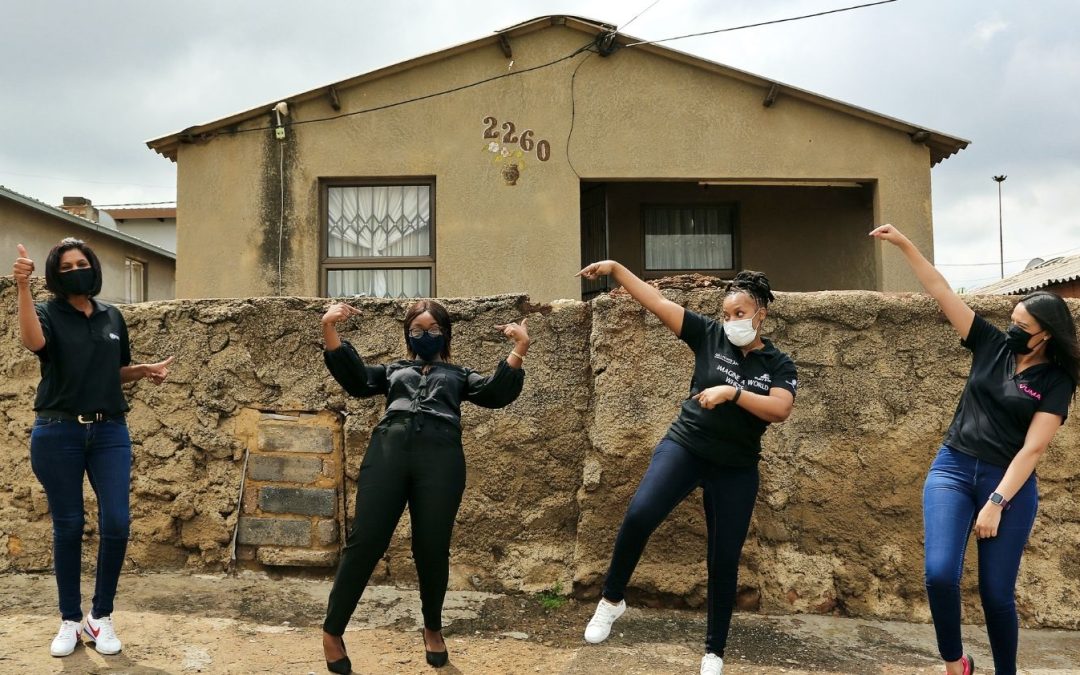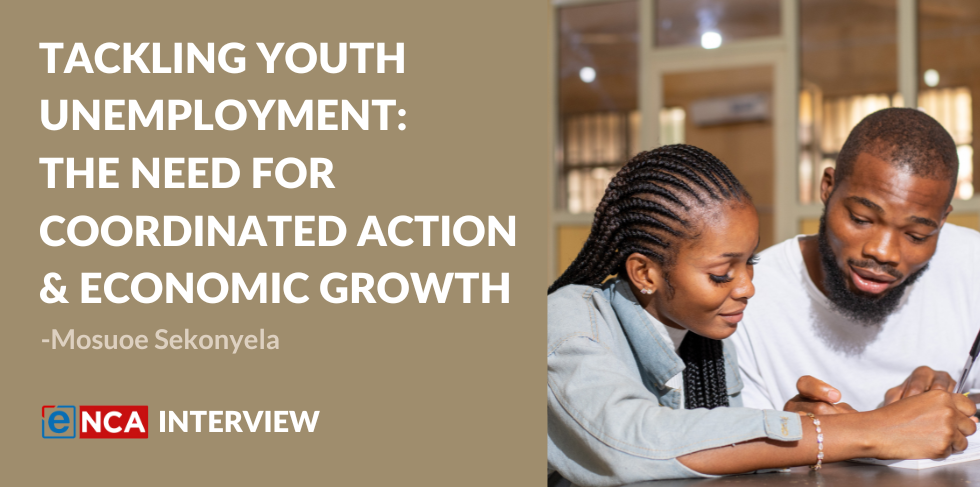Collaboration between industry stakeholders proves it’s ability to unlock jobs.
- Sector-level coordination allows industries to organise themselves into engines of inclusive growth by harnessing the mutual interests of all players
- Harambee Youth Employment Accelerator, CallForce and Vuma pilot work from home jobs for township youth
- Township women empowered to work from home
- Pilot shows that South Africa’s township economy can grow and benefit from sector innovation
No single organisation – whether government, corporate or civil society – can solve South Africa’s unemployment crisis alone. With nearly two-thirds (63.2%) of our young people not in work or education, a coordinated effort is required to offer them economic inclusion.
Coordination at a sector level supports industries to organise themselves into engines of inclusive growth by harnessing all players’ mutual interests. This approach’s success is currently being tested in a Soweto pilot programme with three organisations working together to create township-based work from home opportunities in the global business services (GBS) sector.
SA-based global outsourcing specialist CallForce brought the job opportunities, Harambee Youth Employment Accelerator brought the employees, and Vumatel brought the high-speed internet that enabled their employment.
Since the beginning of lockdown, contact centres have worked with limited on-site capacity. However, their business model relies heavily on the efficiencies of scale afforded by a centralised workforce due mainly to limiting operational variables such as connectivity costs and access. All the remote work enablement platforms that power the GBS sector exist and are excellent at enabling remote staff to work from home. However, with 40% of its workforce still at home, the most significant hurdle the sector faces is last-mile connectivity, particularly for remote workers in townships and similar communities, who constitute a large proportion of the sector’s workforce.
As a high growth BPO company, CallForce was looking for the optimal connectivity solution to empower its remote working strategy to enable stable and fast connectivity cost-effectively and ensure world-class service delivery by its contact centre agents working from their township homes. Harambee had employable young people living in townships who could be geo-located close to the third collaborator’s established fibre presence, Vumatel.
Matched on geography, the fact young people had a quiet space to work in their homes and employment by CallForce, Vumatel then stepped in to provide last-mile connectivity by installing a stable 20MB fibre line into each home. The cost of installation, and connectivity for the first month was covered by Vumatel, with ongoing expenses carried by employer CallForce.
Evan Jones, Group Strategy Director of Harambee, says the pilot is successful on every level. “It more than meets minimum viable requirements. It proves that great quality township remote work is possible, that the work-from-home model works, and that it is scalable and globally competitive.” Also noteworthy is that this pilot shows that South Africa’s township economy can grow and benefit from such enablement programmes.
It is clear from the pilot that a coordinated and collaborative approach completely changes young people’s prospects and women especially. Disproportionately affected by lockdown, 65% of women lost their jobs at its height. They have not yet recovered at a meaningful rate; fewer women are now employed than before the pandemic.
Candice Roberts, CEO of CallForce, says that enabling women is a gratifying aspect of the programme. “Knowing that the women in our workforce can earn their salaries as skilled call centre agents while taking care of their families is as much weight off our minds as it is off theirs. It also matters that they don’t have to spend a high proportion of their earnings on transport which increases their much-needed disposable income.”
One of the critical successes of the programme is that it provides stable and sustainable employment. To ensure this, new employees are trained on-site to enable successful learning and establish a close connection to CallForce as their employer. Once they started working remotely, the relationship was maintained through various online apps and platforms to foster team building and ensure that they continued to feel part of the broader company.
Ongoing tracking of the work from home team shows productivity levels of 103,12%. CallForce ideally expect a minimum of 95% productivity for its agent. “This team’s high productivity is mainly driven by the fact that working from home means these agents are able to login much earlier than scheduled,” says Roberts.
The team’s average call handling time is in line with all agents and they’re recording very high warm transfer rates which speaks to ownership of the customer’s query.
Taylor Kwong, Vuma’s CSI Manager, says the pilot dovetailes with the company’s vision. “Our vision is to help build a connected South Africa. We believe that our value extends beyond infrastructure, reaching ordinary individuals and empowering communities. The nature of our business puts us right in the heart of our communities, and our philosophy of ‘if we can, we must’ guides our value of creating opportunities for people in these areas.” She adds that this project is about growing the economy through unlimited access to information and opportunities to empower people to do extraordinary things. One of its rewards is uplifting and empowering young South Africans by connecting them to work opportunities.
The main lesson of this pilot is proof that sectors can organise themselves into engines of growth. It demonstrates that when mutual interests are harnessed, they can be translated into concrete jobs filled by skilled and employable workers.
A collaboration like this enables the sector to service existing demand for good contact centre operators and mitigates any risk of client commitments not being delivered. What’s more, it has created a remote working model for the future to cement our leading international position further.
Watch this video to see how this collaboration is changing lives
First issued by Harambee Youth Employment Accelerator and Vumatel and Callforce on 24 March 2021 and updated with productivity statistics on 9 July 2021. This article is featured on IT-Online.





 Stay Connected
Stay Connected



